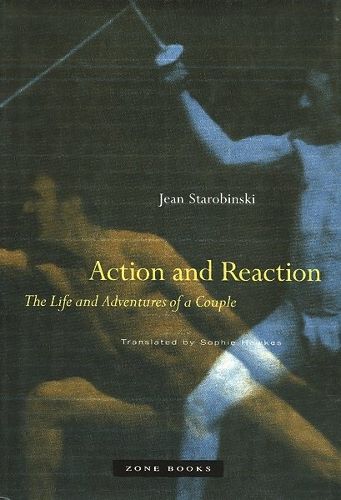Readings Newsletter
Become a Readings Member to make your shopping experience even easier.
Sign in or sign up for free!
You’re not far away from qualifying for FREE standard shipping within Australia
You’ve qualified for FREE standard shipping within Australia
The cart is loading…






What do biologists mean when they say that to live is to react? Why was the term abreaction invented and later abandoned by the first generation of pscyhoanalysts? What is meant by reactionary politics? These are but a few of the questions the internationally renowned scholar Jean Starbinski answers in his conceptual history of the word pair, action and reaction. Not simply a history of ideas, "Action and Reaction" is also a semantic and philological history, a literary history, a history of medicine, and a history of the biological sciences. By concentrating on the moment when scientific language and ordinary language diverge, Starbinski uncovers a genealogy of the human and natural sciences through their usage of action and reaction as metaphors. Newton's law - to every action there is an equal and opposite reaction - becomes a point of departure for an exploration of the lexical and metaphorical traces left in its wake. Starbinski analyzes the scientific, literary and political effects of the use of the terms action and reaction to describe and explain the material universe, the living body, historical events, and psychological behaviour.In what he calls a "polyphonic score" - a kind of mosaic - he uses his subject to offer new insights into the work of philosophers (Aristotle, Leibniz, Kant, Nietzsche, Jaspers), scientists (Newton, Bichat, Bernard, Bernheim, Freud) and writers (Diderot, Constant, Balzac, Poe, Valery). Ultimately, the book explores the power and danger of metaphorical language and questions the convergence and collapse
$9.00 standard shipping within Australia
FREE standard shipping within Australia for orders over $100.00
Express & International shipping calculated at checkout
What do biologists mean when they say that to live is to react? Why was the term abreaction invented and later abandoned by the first generation of pscyhoanalysts? What is meant by reactionary politics? These are but a few of the questions the internationally renowned scholar Jean Starbinski answers in his conceptual history of the word pair, action and reaction. Not simply a history of ideas, "Action and Reaction" is also a semantic and philological history, a literary history, a history of medicine, and a history of the biological sciences. By concentrating on the moment when scientific language and ordinary language diverge, Starbinski uncovers a genealogy of the human and natural sciences through their usage of action and reaction as metaphors. Newton's law - to every action there is an equal and opposite reaction - becomes a point of departure for an exploration of the lexical and metaphorical traces left in its wake. Starbinski analyzes the scientific, literary and political effects of the use of the terms action and reaction to describe and explain the material universe, the living body, historical events, and psychological behaviour.In what he calls a "polyphonic score" - a kind of mosaic - he uses his subject to offer new insights into the work of philosophers (Aristotle, Leibniz, Kant, Nietzsche, Jaspers), scientists (Newton, Bichat, Bernard, Bernheim, Freud) and writers (Diderot, Constant, Balzac, Poe, Valery). Ultimately, the book explores the power and danger of metaphorical language and questions the convergence and collapse